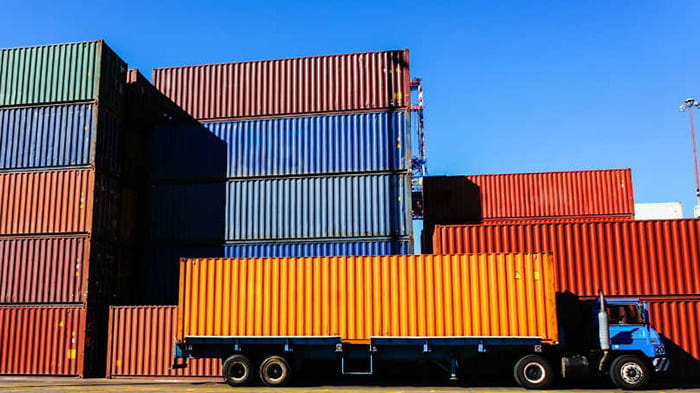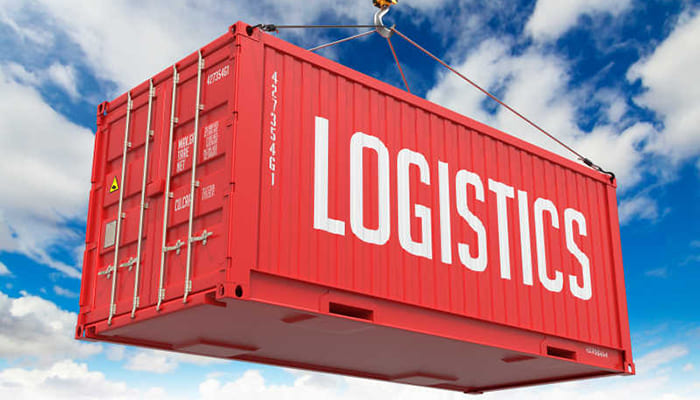You often hear the term CBM used in the business of moving goods from one country to another by air, sea or land. CBM, short for “cubic meter,” is a widely used unit of measurement in shipping that determines what you pay for shipping.
In this article, we’ve put together everything you need to know about CBM so that you can accurately measure your cargo and determine your shipping costs. Read on to learn:
What is CBM in shipping?
CBM, an abbreviation of Cubic Meters, is one of the most commonly used units of measurement of the volume of shipment, globally.
This measurement is calculated by multiplying the width, height and length together of the shipment.
It determines how much space your cargo will take up on a ship, aircraft or truck, which in turn will decide how much it will cost to transport.
CBM is used for all three modes of shipping methods including air, sea, and road.
Conversion rate from CBM into Kg
The conversion rate depends on shipping method
By air: 1 CBM = 167 Kg
By road: 1 CBM = 333 Kg
By sea: 1 CBM = 1000 Kg(In most cases)

CBM Meaning in Shipping Terms
CBM is an abbreviation for Cubic Meters, and it is the most generally used measurement unit for the volume of shipments all over the globe.
CMB or Cubic Meter is that unit through which we can measure the volume of the entire cargo. In simple words, we can define CBM as the metric volume unit, which clarifies how much space the package will take.
How to calculate CBM for sea shipment?
For LCL ocean freight
Suppose you send LCL goods by sea. (LCL is a way of moving medium quantities of goods in shared containers).
Shipping companies collect freight charges under CBM, mainly for LCL cargoes, provided they weigh less than one ton (1000 kg).
If the cargo weighs more than one ton, the freight will be charged by weight.
Example 1:
Package dimensions: 3M x 3M x 3M
CBM: 3 x 3 x 3 = 27m³
DIM factor: 1:1000
Gross weight: 300 kg (0.3 ton)
Freight rate: $40 per CBM/ton
Since volume (CBM) is greater than actual weight, freight will be charged on the basis of CBM. So, freight cost: 40 x 27 = $1080
Example 2 :
Package dimensions: 2 m x 2 m x 1 m
CBM: 2 x 2 x 1 = 4 m³
DIM factor: 1:1000
Gross weight: 6000 kg (6 ton)
Freight rate: $40 per CBM/ton
Since gross weight is greater than volume, freight will be charged on the basis of gross weight. So, freight cost: 40 x 6 = $240
How to calculate CBM for sea shipment?
In an air shipment, the CBM calculation remains the same, but the freight is charged on actual weight or volumetric weight (after multiplying CBM by the DIM factor) — whichever is higher. The DIM factor generally used in Air freight is 1:6000 i.e. one cubic meter is equal to about 6000 kilograms.
Example 1:
Freight rate: $200 per CBM/ton
Package dimensions: 150 cm X 100 cm X 100 cm
Gross weight: 150 kg (0.15 ton)
Dimensional weight: 150 x 100 x 100 / 6,000 = 250 kg (0.25 ton)
Chargeable weight is dimensional weight (250 kg), which is greater than gross weight (150 kg). So, freight cost: 0.25 x 200 = $50
Example 2:
Freight rate: $200 per CBM/ton
Package dimensions: 60 cm X 80 cm X 60 cm
Gross weight: 800 kg (0.8 ton)
Dimensional weight: 60 x 80 x 60 / 6,000 = 48 kg (0.048 ton)
Chargeable weight is gross weight (800 kg), which is greater than dimensional weight (48 kg). So, freight cost: 0.8 x 200 = $160
1 CBM to kg in air freight
Calculating CBM for air cargo is different from sea shipment. The standard formula used is length (cm) x width (cm) x height (cm) ÷ 6000 = volume weight (KG)/1 CBM ≈ 166.6666 KG.
Any air freight calculations will use this transformation, so please note the following rules of thumb:
167 kg = 1 CBM
1 CBM to kg in sea freight
For seaborne pricing, one ton or 1000 kg is equivalent to 1 CBM.
This makes it quite simple to calculate the CBM of the LCL cargo.
For quick reference, here is a handy chart that converts kg to CBM for sea freight:
1 kg = 0.001 CBM
10 kg = 0.01 CBM
50 kg = 0.05 CBM
200 kg = 0.2 CBM
500 kg = 0.5 CBM
1000 kg = 1 CBM

CBM for container types
Generally, one needs to calculate the CBM of the consignment as well as the container. Standard containers are generally available in 3 sizes- 20ft, 40ft, and 45ft and the dimensions for the variants are as follows:
20ft container CBM
20′ Dry Container : 33.2 CBM (Dimensions L:5.9m, W:2.3m, H:2.3m, Payload:28130 kg)
20′ Reefer Container : 28.1 CBM (Dimensions L:5.4m, W:2.3m, H:2.1m, Payload:29140 kg)
20′ Open Top Container : 32.5 CBM (Dimensions L:5.9m, W:2.3m, H:2.3m, Payload:30050 kg)
20′ Open Top HC Container : 36.8 CBM (Dimensions L:5.9m, W:2.3m, H:2.6m, Payload:27970 kg)
| 20ft container | CBM | Length | Width | Height | Payload |
|---|---|---|---|---|---|
| 20' Dry | 33.2m³ | 5.9m | 2.3m | 2.3m | 28130kg |
| 20′ Reefer | 28.1m³ | 5.4m | 2.3m | 2.1m | 29140kg |
| 20′ Open Top | 32.5m³ | 5.9m | 2.3m | 2.3m | 30050kg |
| 20′ Open Top HC | 36.8m³ | 5.9m | 2.3m | 2.6m | 27970kg |
40ft container CBM
40′ Dry Container : 67.7 CBM (Dimensions L:12m, W:2.4m, H:2.4m, Payload:28750 kg)
40′ Reefer HC Container : 67.7 CBM (Dimensions L:11.6m, W:2.3m, H:2.4m, Payload:29580 kg)
40′ Open Top Container : 66.8 CBM (Dimensions L:12m, W:2.3m, H:2.4m, Payload:28450 kg)
40′ Dry HC Container : 76.3 CBM (Dimensions L:12m, W:2.3m, H:2.7m, Payload:28600 kg)
| 40ft container | CBM | Length | Width | Height | Payload |
|---|---|---|---|---|---|
| 40' Dry | 67.7m³ | 12m | 2.4m | 2.4m | 28750kg |
| 40′ Reefer | 67.7m³ | 11.6m | 2.3m | 2.4m | 29580kg |
| 40′ Open Top | 66.8m³ | 12m | 2.3m | 2.4m | 28450kg |
| 40′ Open Top HC | 76.3m³ | 12m | 2.3m | 2.7m | 28600kg |
40ft high cube container CBM
40′ Standard High Cube Container : 76.3 CBM (Dimensions L:12m, W:2.4m, H:2.7m, Payload:28600 kg)
45ft high cube container CBM
45′ Standard HC Container : 86 CBM (Dimensions L:13.5m, W:2.3m, H:2.7m, Payload:27700 kg)
Note: HC means High Cube; Payload is the maximum cargo weight a container can hold.
Why Choose Airsupply to arrange your Air/Sea shipment?
Airsupply established at 2014 year, we specialize in logistics solution from China to Europe/ USA/Mexico/Australia/Asia over 10 years.
Competitive rates with allotment from HKG/SZX/CAN/PVG/PEK/XMN/TAO/CGO/CTU and reliable service are the basics of our business.
We promise to provide economic, high quality service and to remain response to your need at all time. And it will be my honor to be your partner in China.




